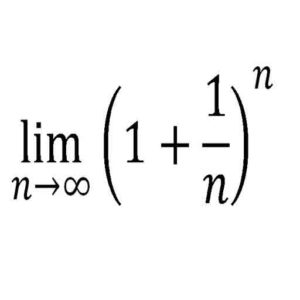The Importance of ‘Math Literacy’ in the Modern Economy

The ability to think analytically and make use of elementary mathematics is becoming as important as being able to read. And it all starts in childhood.
Maths has always been incredibly important: invaluable in engineering, the natural sciences, and finance. Historically, it has mainly been the preserve only of those working in such disciplines; however, in the 21st Century, everyone needs the right half of their brain.
Firstly, math is now everywhere: take for examples, law enforcement and journalism, both relatively independent of one another, and neither historically associated with math. Well, the first episode of CSI aired October 2000, this was the point at which TV dramas could no longer pretend that crimes are solved through asking ‘just one more question’; and in the run-up to the 2012 presidential election a news site called Fivethirtyeight relied on statistics to predict the outcome in each of the fifty states—they called every single one correctly, and major newspapers quickly reassessed their ‘data journalism’ budgets. If cops and journalists now rely on statistical models, is anyone safe?
Moreover, not only will it be more likely that one is using maths at work, but the very nature of work has changed, and this necessitates some application of mathematics. Instead of working a steady 9-to-5 for an entire career, your son or daughter will most likely have to coordinate a multitude of gigs and side-hustles. Perhaps, none will overtly require mathematics, but figuring out whether or not, together, they’ll provide enough money to pay the rent will. As for a pension… well I should say investing a portion of their earnings would be prudent—unless of course your son/ daughter doesn’t have a good grasp of math, in which case they’ll just be giving away their money away to someone who does
Now the good news: all kids can be great at maths!
This may not ring true, if by maths you’re imagining something unintelligible scrawled across a blackboard; however, the essence of mathematics is simply thinking logically. It’s a feature of human understanding, and natural to children. When your child asks “but why…” 17-times in a row, they’re thinking in the form of a mathematical proof, where each line of thought requires an explanation.
Now, not every child will want to go on to study abstract algebra, or calculus in n-dimensions. And that’s fine. Perhaps they’ll find formalised mathematics boring and a little dry. Also fine. What’s important—indeed in the 21st Century imperative—is that students don’t find the subject confusing or intimidating. Maths isn’t something that involves Greek letters that “I don’t get”, but a tool they can apply in their lives as required. After all, the calculator function on one’s phone is only about as useful as autocorrect.
Unfortunately, the manner in which mathematics is taught in schools has not changed much in the last century. The national curriculum encompasses a base of knowledge that will serve anyone going on to study engineering at university well, but is somewhat divorced from real-life application.
Crucially, at school an individual student is but one of thirty, if they fail to grasp a concept quickly enough, the class will have moved on. Now, in History or English Literature missing a lesson or not quite grasping a theme, is never too detrimental; however, in maths, tomorrow’s lesson won’t make any sense at all without a complete understanding today’s material. In a very short space of time a student may fall behind and enter a negative frame of mind whereby math lessons simply to be endured until the bell rings. Teachers do their best, but unless someone who’s struggling to understand raises their hand, their lack of understanding will only become clear after the next class assessment. At which point they’ve suffered weeks of feeling inadequate as regards their ability, a sentiment their grade will only compound; when, in fact, the issue was merely that a simple piece of information wasn’t conveyed in a manner that made immediate sense to them.
A personal tutor can assess whether or not your child has any gaps in their knowledge, then present any such information in a variety of ways, so that your child can understand such concepts in a way that’s intuitive to them. Moreover, problems can be framed in imaginative ways that play to your child’s interests, highlighting to them the value of math. These are a few of the reasons that children with private math tutors outperform their peers and live up to their potential.
